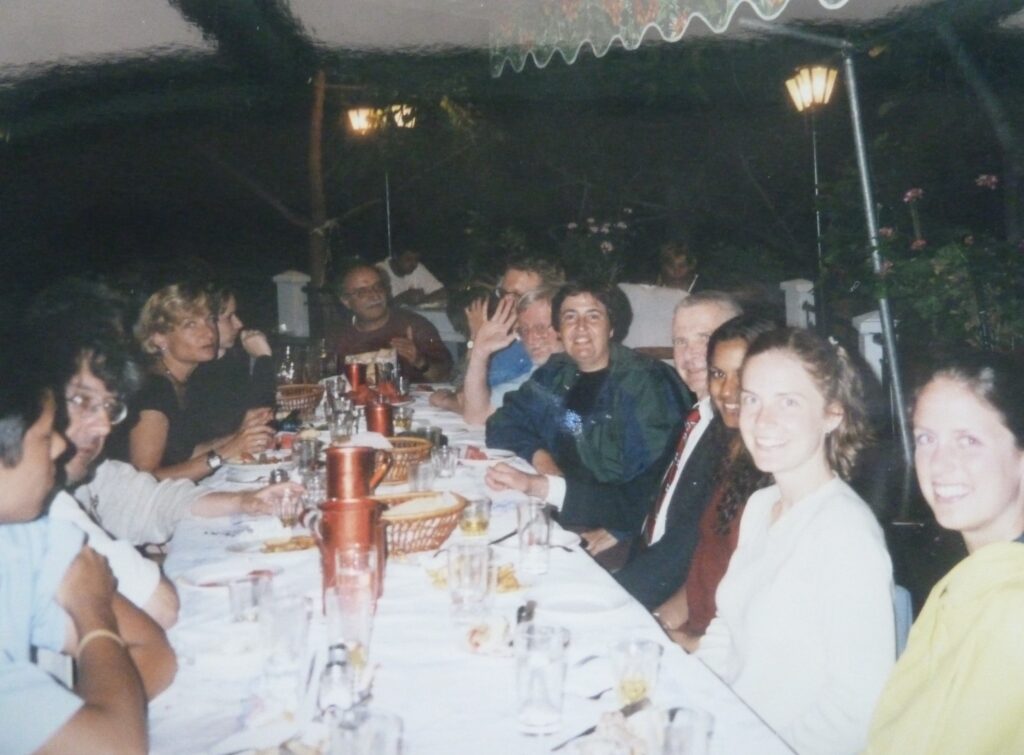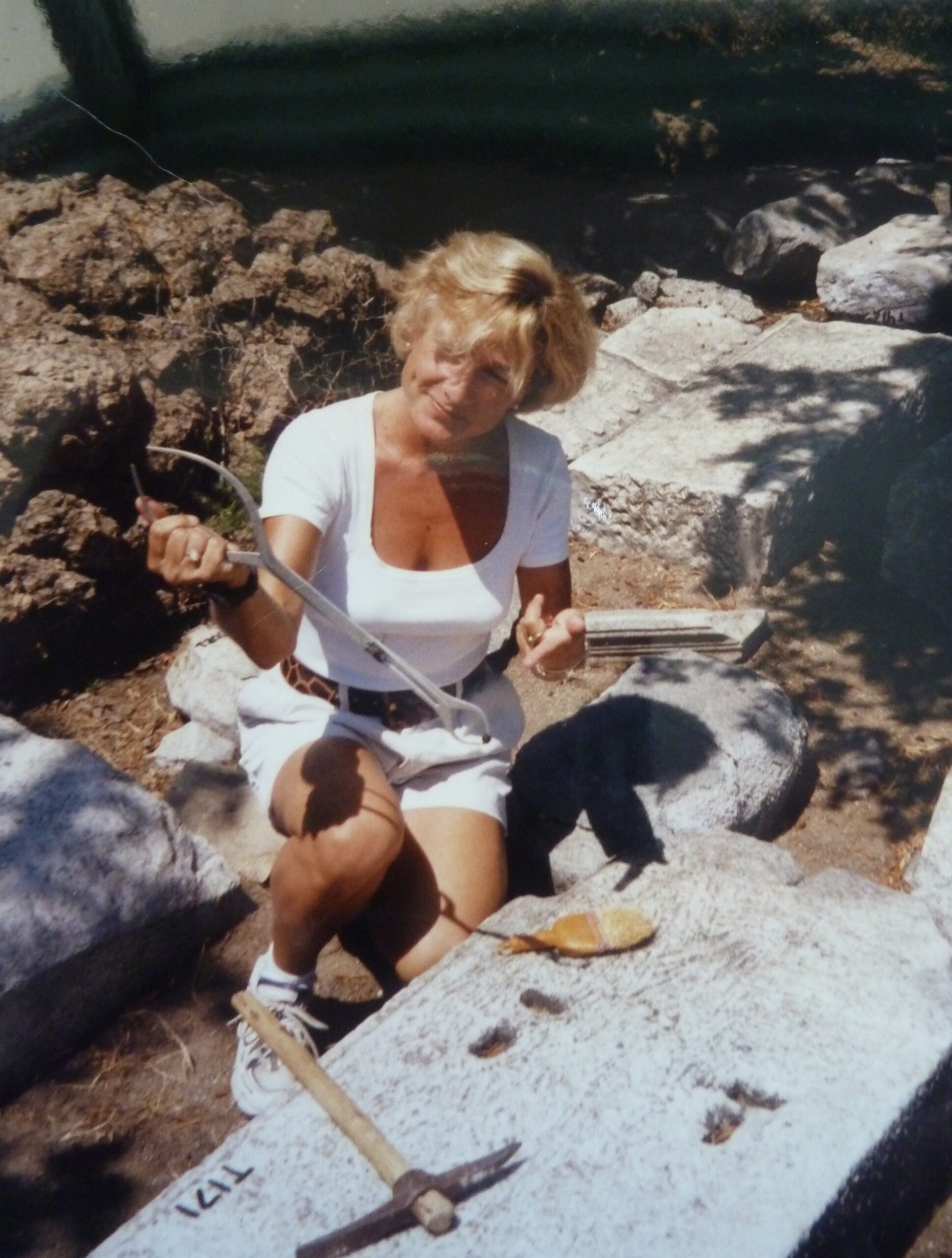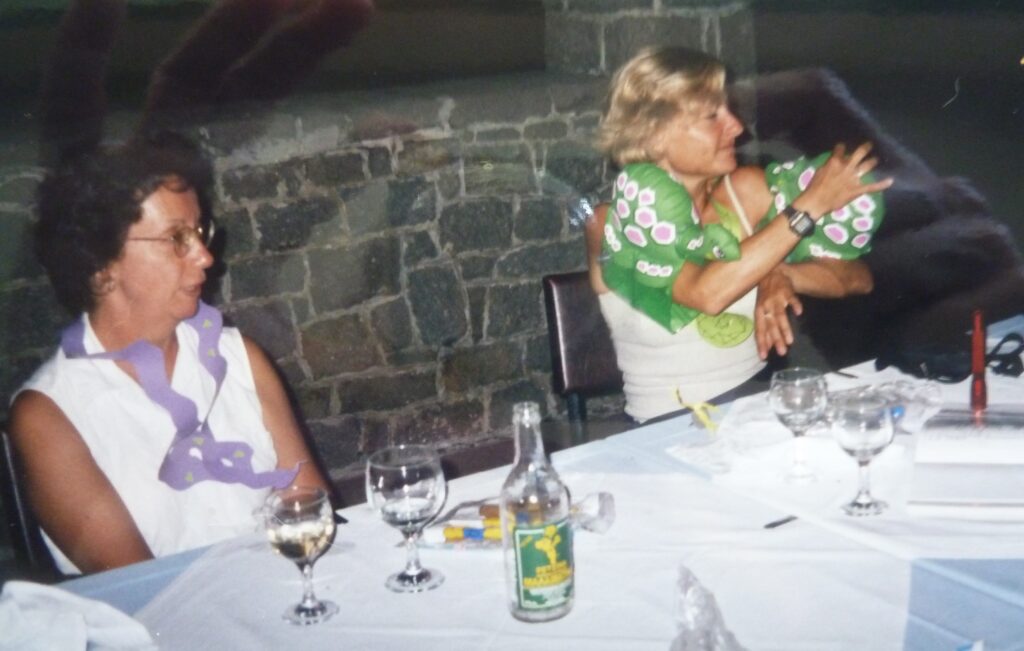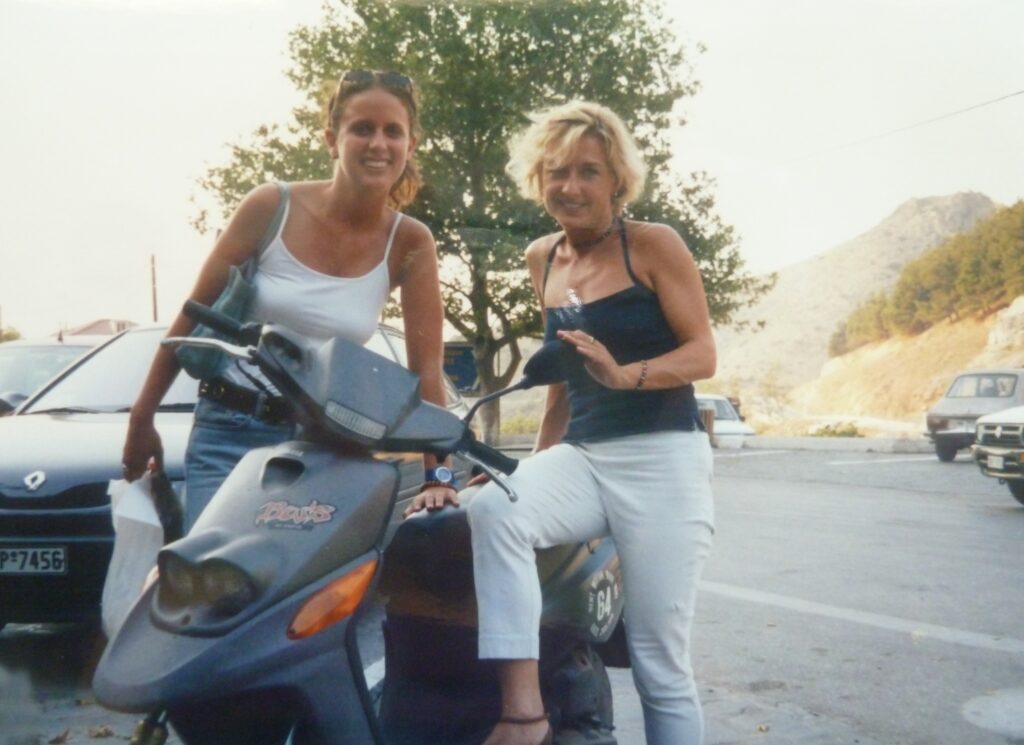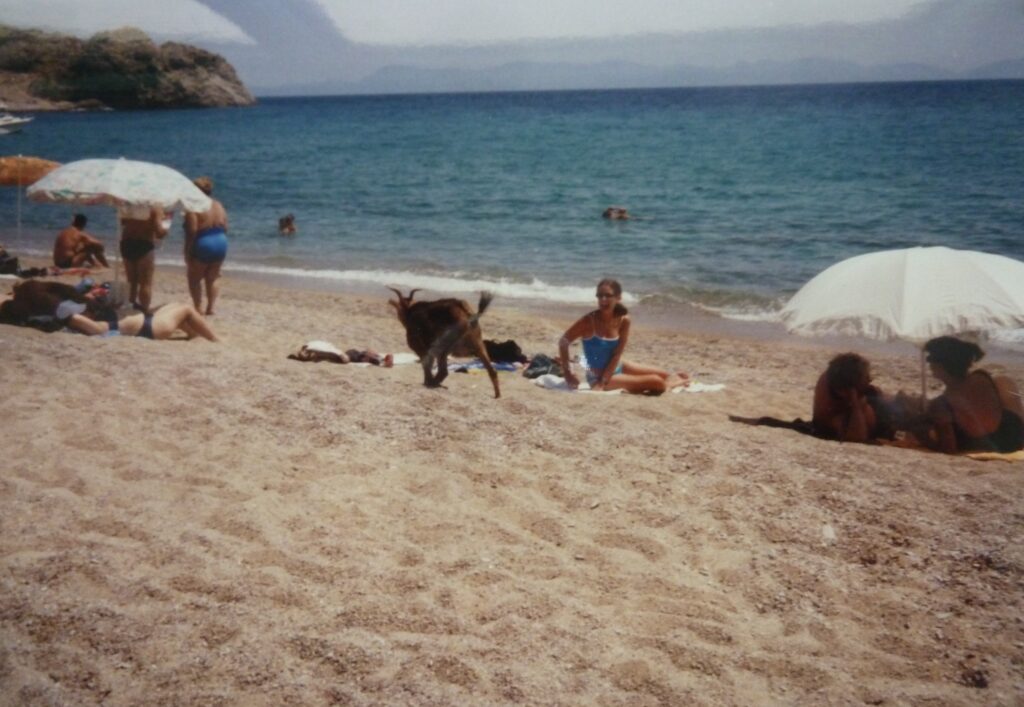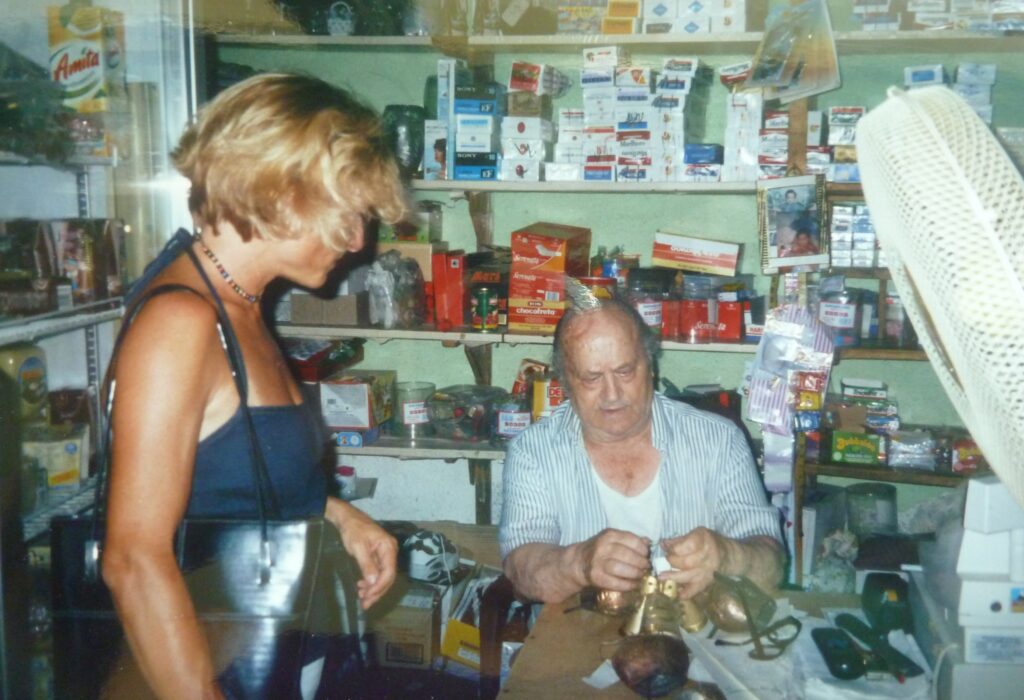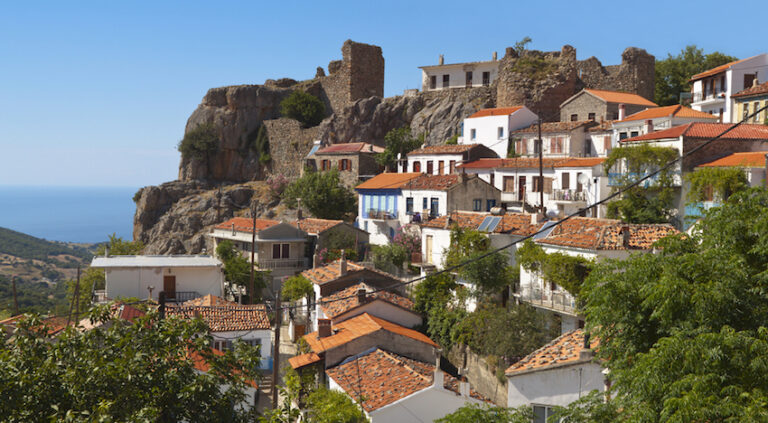

Monday: This is great, isn’t it?
Saturday: Only seven more weeks to go.
Thoughts from week one through three:
If you’re voted off the island, have you lost or have you won?
Samothrace Field Season, summer 2001
I was one of a handful of grad students from the Institute of Fine Arts (affectionately called the Tute) to participate in the summer 2001 study season on the Greek island of Samothrace. In New York, it seemed a lucky windfall; a summer spent in paradise. Once our small group had assembled outside the excavation house where we would spend our summer, however, we realized we would be counting down every one of the 54 days remaining.
Samothrace was no vacation. We worked six days a week; the day began at 6.30 am and ended at 11:00 pm. Monday through Saturday were essentially interchangeable. We ate breakfast at 6.30 and began work at 7:00. Because this was a study season, there was little urgency in any of our activities. We spent the day looking through and cataloging finds from past seasons, all of which had been catalogued before. Taking frequent and completely unnecessary trips to the site of Samothrace killed hours of time. With calipers, we removed goat pellets from engraved blocks of marble. Once back at the field house, we worked diligently to get to the root cause of the perpetually smelly bathroom. Stacked up around the door at all hours of the day were cleaning supplies. A nice Greek man with no other apparent duty would enter the bathroom at intermittent times throughout the day. He swept at 8, mopped at 10; half hour later the trash inside the bathroom was moved to outside the bathroom and sometime before noon, we presumed, the toilet was cleaned. Despite this constant care, dead bugs piled up on the counter and the room continued to reek of urine. It was permeating, this smell. If you walked in, you walked out smelling like the bathroom for the next hour. We conducted several experiments trying to ascertain the origin of this odor but, in our 50+ days on the island, never managed to definitively solve the mystery.
There are about 4000 inhabitants on the island of Samothrace, 2000 of them have long hair, hooves, and bells around their necks. These goats are everywhere. They graze at the excavation site, collect in the church parking lot, walk in pairs down the rocky beach, and, much to our weekly displeasure, appear as the main course at every Sunday dinner.
What follows are diary excerpts, written in the field
Week 1
Professor McCredie is our excavation director on Samothrace. He is also the director of the Institute of Fine Arts, at NYU where we all our hoping to get a degree from. It is a complicated situation which has become much more apparent here, on Samothrace. He is a good director whose Samothrace uniform consists of a khaki shirt and trousers and a pitch helmet. He leads by example. Because he wants us at work by 7:00 am, he arrives at 6:30 am.
His office is upstairs but he comes downstairs occasionally to see what we are, or are not, doing. He is shrewd and can spot a game of hangman at 50 paces. It is for this reason that much of my journal has been drafted in a small data field in the Bronze finds database and later transferred to a regular Word document.
Mosquitos on Samothrace are a problem remedied by a device called “Vape Electric Mosquito Destroyer.” It comes in 1950s packaging, plugs into the wall and emits an odor that makes you nauseous, but seems to have a similar effect on the mosquitoes.
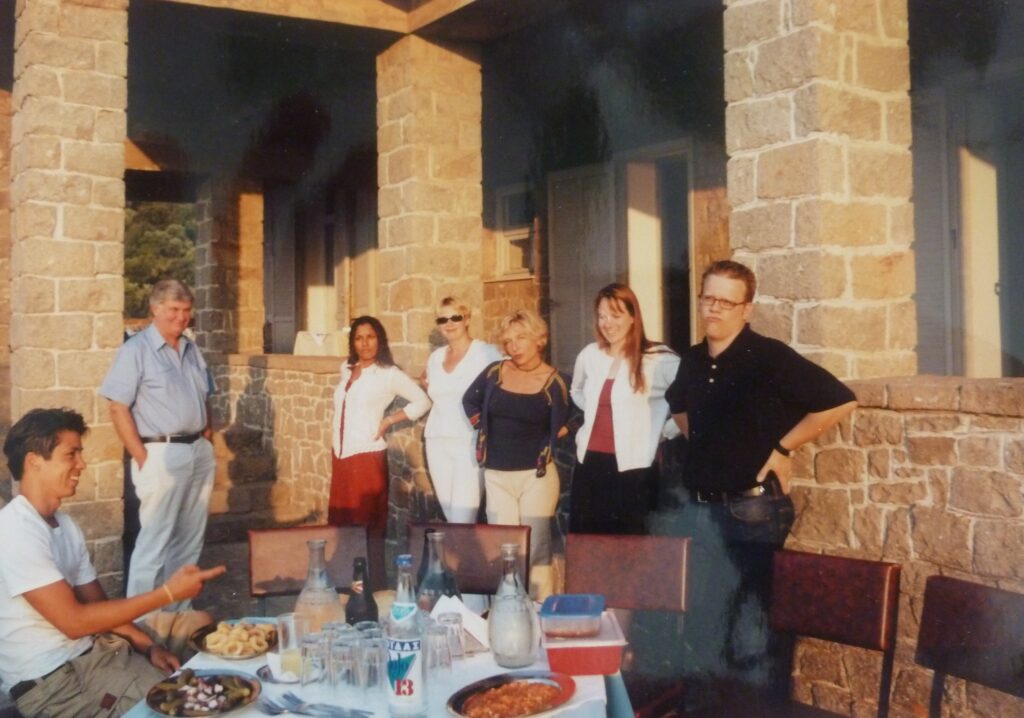
There is only one road and three taxis on the island of Samothrace. As a result, hitchhiking on the island is safe, accepted, and the only way to get around if you do not have your own car. It also present s very good way to meet the people who live here.
Rides can come from just about anyone; grandmas and grandpas, families with kids, early morning fishermen, even motorcycle riders and fellow tourists. My two and only brushes with imagined freedom via hitchhiking have come from hitched rides. The first was a motorcyclist who gave me a lift home on his way to work at 2.30 a.m. He was a relatively handsome young guy, not so common around here. It was my first night on the island and therefore my first hitched ride. We rode down the mountain toward the sea, stars everywhere, crickets chirping. All very romantic. He told me his name, Stratos, and when I asked someone about him the next day, I was told I’d hitched a ride from the town baker.
